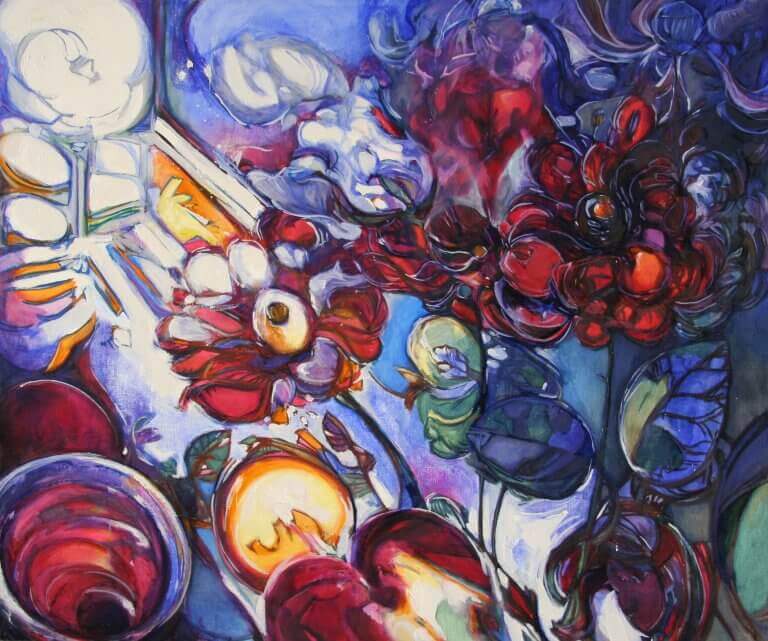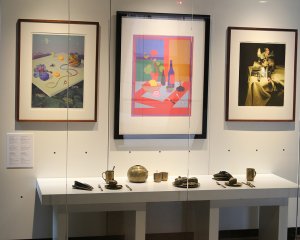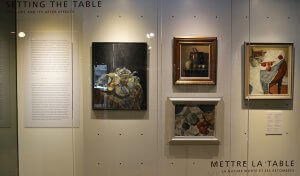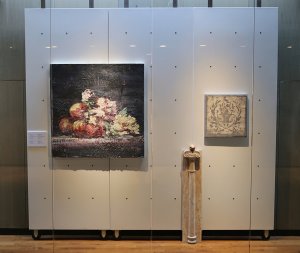
Setting the Table: Still-Life and Its After Effects

Based on the table setting, perhaps the most familiar form of selection and display, still life has often been seen as the humblest artistic genre, despite a long history visible even in the ruins of Pompeii. In the past few hundred years, however, the still life has found new status as a dynamic platform for artistic experimentation. An elementary exercise in the training of artists, and a humble companion to the grand statements of history painting, it once contained ostensible spiritual messages, reminders of the temporary nature of the profane material world. It blossomed in the modern era as painting acquired secular, and non-narrative functions. Structured by the arrangement of curious and enjoyable material objects on a table top, it has brought the composition of a canvas and mundane everyday life into close association. By implication, still life shows how the methods of seeing and choosing, making and consuming, bear upon our relationship to things and space. It produces visible manifestations of exchange and transformation, in which useful things become signs, colours, and decorative supplements, and acquire meaning and value in relation to one another. Over the past several hundred years, still life has moved to centre stage and helped generate a great variety of artistic strategies of selection and arrangement, including the readymade, the collage, the assemblage, the abstract composition, and the allegorical reference. This exhibition, pulled from the permanent collection, links the still life to examples of these developments, demonstrating the continuing vitality of an ancient artistic convention.
-Pan Wendt, Curator
Participating artists:
George Angliss
Léon Bellefleur
Bertram Brooker
John Cox
Gerald Ferguson
J.C. Heywood
Ron Martin
Jan Mollison
Anita Nikolai
John Palchinski
Joseph Plaskett
Colin Reid Haworth
Erica Rutherford
Tony Scherman
Aaron Weldon
Henk Ykelenstam


